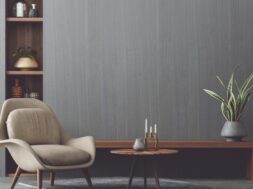Ambuja Cements: modular curing technique
Ambuja Cements: modular curing technique
• A techniques that helps reduce water usage and lower labour• Providing an sustainable, alternative solution to traditional methods
Any concrete product or structure has to go through a curing process when the product or structure gains strength. The process of curing is done mainly with water. The chemical action between cement and water helps in hardening of concrete.
Curing must be done for a certain period of time so that concrete achieves its potential strength. It is very important to do curing properly as it crucial for the strength and durability of the concrete product or structure.
The amount of time for curing depends on the purpose of the concrete product or structure, temperature, and humidity of the atmosphere.
Traditional curing processTraditionally, curing is done by pouring or spraying water on concrete or mortar surfaces for an adequate period of time. Water has to be continuously replenished as and when it evaporates due to high temperature and low humidity. If the water dries out, the strength of the concrete structure or surface will be impacted.
On flat surfaces such as pavements, roads, sidewalks and floor slabs, curing is done by pouring water on the exposed top surface. This is done by making small bunds a few hours after the concrete work is over.
Typically, masons and labourers build bunds with cement and sand on flat concrete surfaces.
Water is then poured on the surface and retained for a few days. On surfaces which cannot hold water, labourers spray water several times during the day for several days.
Ambuja’s modular curing solutionAmbuja Cements Ltd. has come up with an alternative because there are many difficulties in managing the traditional method of curing.In India, many places are extremely hot and arid. Also, water availability is a serious issue.
Under these circumstances, curing process is not always done well. Therefore, Ambuja Modular Curing Solution is a service that helps reduce water use and lower labour and other costs.
Ambuja Modular Curing Solution entails the use of a plastic sheet to prevent water losses due to evaporation and protects against strong winds, low humidity, and high ambient temperatures. The biggest benefit is saving of water. About 12,000 litres of water required for curing 100 square metres of slab surface can be saved on an average.
Ambuja plans to extend the reach of modular curing solution (MCS) through its channel partners. So far, the response to MCS has been quite encouraging as curing is done effectively without hassles, water, or labour. Ambuja Modular Curing Solution is yet another initiative toward sustainability.
Cookie Consent
We use cookies to personalize your experience. By continuing to visit this website you agree to our Terms & Conditions, Privacy Policy and Cookie Policy.









